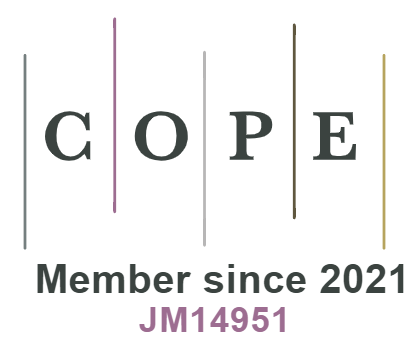Logos and paideia
DOI:
https://doi.org/10.18778/2544-7238.01.06Keywords:
classical philosophy, logos, paideia, language, education, Bildung, postmodern conditionAbstract
The aim of this paper is to reconsider the meaning of two title concepts of essential importance for the development of the European thought. The author makes an attempt to reconstruct the origin of Greek reflection referring to Paideia written by Werner Jaeger, German classicist and philosopher from the first half of the twentieth century. Starting with the mythical sources of education, connected with the Minoan tradition reinterpreted by Zbigniew Herbert, the author goes on to present the mnemonic sense of the epic Catalogue of Ships from the second book of Iliad by Homer and subsequently discusses cathartic educational tradition and its reference to Pythagoreanism and Heraclitism. He subsequently discusses the stage of education constituted by the Athenian sophists connected with the utilitarianism of Protagoras and its development and transgression achieved by Socratic elenchus and maieutic. Platonian proposal of turning paideia into the integrity of the Greek polis culture was presented as the culmination of the idea of the Hellenic education. It had to prepare the soul of the disciple for the acceptance of the uttermost pattern of arete. For Plato it was the affection for ideas, notably noble virtue of aspiration to triple unity (trinity) of the Truth, Beauty, and Goodness. Wilhelm von Humboldt renewed classical paideia and established the idea of Bildung to join education with inner self‑development and not only personal but also cultural maturation. The importance of connection between paideia and Bildung was also underlined by two quoted writers: Karl Jaspers (German co‑founder of existentialism) and W.H. Auden (English‑American poet). In conclusion, the author poses a question whether postmodern contesting of classical and enlightenment ideals of education (paideia and Bildung) has any purpose and whether the quest for the principle of the universe based on the universal logos can be still considered reasonable. He also wonders whether traditional search for the Truth, Beauty, and Goodness can actually compete with narrowly understood, effective technological practice. In his humble opinion this question must be left without any conclusive answer.
Downloads
References
Alsina C., 2012, Wyznawcy liczb. Twierdzenie Pitagorasa, Toruń: Buka Books Sławomir Chojnacki.
Google Scholar
Auden W.H., 2017, Rozmyślania na marginesie lektury Paidei Wernera Jaegera, [w:] W.H. Auden, Starożytni i my. Eseje o przemijaniu i wieczności, Warszawa: Fundacja Augusta hr. Cieszkowskiego, s. 59–72.
Google Scholar
Gajda J., 1989, Sofiści, Warszawa: Wiedza Powszechna.
Google Scholar
Heraklit z Efezu, 2005, Zdania, Gdańsk: słowo/obraz terytoria.
Google Scholar
Herbert Z., 2011, Wiersze zebrane, oprac. R. Krynicki, Kraków: Wydawnictwo a5.
Google Scholar
Homer, 2004, Iliada, Katowice: Videograf.
Google Scholar
Jaeger W., 1962–1964, Paideia, t. 1–2, Warszawa: Instytut Wydawniczy Pax.
Google Scholar
Jaspers K., 2017, Idea uniwersytetu, Warszawa: Narodowe Centrum Kultury.
Google Scholar
Kirk G.S., Raven J.E., Schofield M., 1999, Filozofia przedsokratejska, Warszawa: Wydawnictwo Naukowe PWN.
Google Scholar
Legowicz J., 1973, Historia filozofii starożytnej Grecji i Rzymu, Warszawa: Państwowe Wydawnictwo Naukowe.
Google Scholar
Lyotard J.F., 1997, Kondycja ponowoczesna, Warszawa: Fundacja Aletheia.
Google Scholar
Lyotard J.F., 1998, Postmodernizm dla dzieci. Korespondencja 1982–1985, Warszawa: Fundacja Aletheia.
Google Scholar
Nerczuk Z., 2016, Wokół sofistyki, Toruń: Wydawnictwo Naukowe Uniwersytetu Mikołaja Kopernika.
Google Scholar
Reale G., 1993, Historia filozofii starożytnej, t. 1: Od początków do Sokratesa, Lublin: Wydawnictwa Katolickiego Uniwersytetu Lubelskiego.
Google Scholar
Snell B., 2009, Odkrycie ducha, Warszawa: Fundacja Aletheia.
Google Scholar
Swieżawski S., 2000, Dzieje europejskiej filozofii klasycznej, Warszawa–Wrocław: Wydawnictwo Naukowe PWN.
Google Scholar
Wolicka E., 1994, Mimetyka i mitologia Platona. U początków hermeneutyki filozoficznej, Lublin: Towarzystwo Naukowe Katolickiego Uniwersytetu Lubelskiego.
Google Scholar
Downloads
Published
How to Cite
Issue
Section
License

This work is licensed under a Creative Commons Attribution-NonCommercial-NoDerivatives 4.0 International License.












